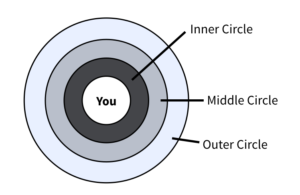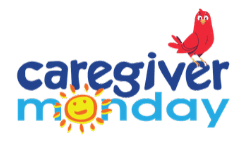In August, we celebrate both National Friendship Day (August 2) and National Relaxation Day (August 15). Together these days make the perfect prescriptions for caregiver self-care; finding time for emotionally supportive relationships and time to relax and just breathe.
This summer has been particularly challenging for the four generations who are family caregivers. According to the recent Caregiving in the U.S. 2020 and other studies, 1 in 5 Americans are family caregivers. This includes more than 1 million children ages 8-18 who care for chronically ill parents or grandparents, 25 percent of all millennials, and even 70-year-olds caring for 90-year-old parents. Caregivers young and old are still facing uncertainty about the coronavirus pandemic, concerns about safe reopening of workplaces, schools, long-term care communities and local businesses and continued worries about the economy.1,2,3
As we enter the last official month of summer, we offer a summer school lesson for Caregivers of all ages. Today’s lesson? Learning about the two “R”s: Relationships and Relaxation for better health and wellness.
Number One Reason We Live Longer and Healthier: Relationships
The Harvard Adult Development Study, ongoing longitudinal research that began in 1938, has followed cohorts of young men and their spouses through their lives to determine the secrets to living longer and healthier.4 This research has shown it is not wealth nor fame, education nor income levels, race nor religion but quality relationships – and at least one confidante – that give us greater happiness and longevity.
While many believe loneliness is based on the state of being alone, it is actually about the quality of our relationships. If there is a lack of connection and emotional support, even with relationships in the same home, loneliness fills the gap. One study found that chronic loneliness was associated with a 40 percent higher risk of developing dementia.6 Numerous studies have shown how loneliness and its negative health impact are an increasingly critical public health issue.
This finding is particularly important for family caregivers. According to the Caregiving in the U.S. 2020 study, the profile of a caregiver who expressed feelings of being “all alone” is a 49 to 50-year-old woman, unmarried or un-partnered, caring for an older parent with a long-term chronic illness or mental health issue.5 These caregivers, the majority of which are employed, are now juggling work from home, home schooling children, and caring for older loved ones from a distance.
Self-care Solutions Through Relationships
- Find your “vault.” Taking a cue from the Harvard Study, caregivers need someone who can be a sounding board, offer emotional support, give them a break and help them escape feelings of loneliness and loss of control with a little laughter. We call this person the “vault” because they allow caregivers to express feelings of anger and frustration common on the caregiving journey, without holding it against the caregiver later. It is about finding a true confidante in life – someone you trust who always has your back.
- Create a social convoy. In 1980, lifespan developmental psychologist Toni Antonucci developed the theory of the social convoy model to help chronically lonely people form connections that provide protection.7 Similar to camels in the desert, cross-country truckers or navy ships sailing together to detect enemy submarines, this convoy concept of forming protective units applies to caregivers who express feeling all alone. Antonucci’s model advises caregivers to use a visual exercise to create their social convoy.

Try it: On a sheet of paper draw three concentric circles. Then, write down the names of friends and family depending on how connected you feel to them, with those closest in the inner circle and those more casual friends and supporters in the outer circles. The inner circle represents your social convoy, who can help you travel through life and provide emotional protection on your caregiving journey.
The Relaxation Response
Finding time to relax is often a luxury few caregivers enjoy. Dr. Herbert Benson’s book, The Relaxation Response, helped to demystify the idea of mindfulness back in the 70s. He advised just 20 minutes a day of meditation, tai chi or yoga, progressive muscle relaxation, breathing techniques or prayer can alleviate many stress-related health issues including fibromyalgia, hypertension, arthritic pain, asthma and angina.8
Numerous research studies have shown the positive impact of practicing mindfulness daily. This is even more important for caregivers; despite 51 percent of caregivers feeling their role caring for a loved one has given them a sense of purpose, they also report experiencing added stress and strain.9
Self-Care Solutions Through Relaxation
- Find a method that works for you. Whether it is using a mindfulness app, watching online classes or practicing mantras individually, out of the 1,440 minutes in every day, find 20 minutes just for these relaxing self-care routines.
- Think happy thoughts. Sonja Lyubomirsky, one of the leading psychological researchers on happiness, developed her 40 Percent Solution theory based on the findings of her study that showed that thinking of happy thoughts and events for 8-15 minutes every day for 3 days increases happiness levels for four weeks after the exercise.10
- Grab a lemonade. Cold drinks are a traditional part of summer. In particular the energizing and refreshing taste of fresh lemonade can not only help with hydration, which can suffer in warmer weather, but can support metabolism for weight loss and is a great source of Vitamin C. According to a Yale University study, the sensation of drinking a cold beverage tells our brains that we are rehydrating and the acidity of lemons can trigger refreshing feelings.11 We believe making lemonade out of lemons may be just what caregivers need this summer.

References
1 National Alliance for Caregiving. (2020). Caregiving in the US. AARP; Bethesda, MD: The National Alliance for Caregiving.
2 Associated Press-NORC Center for Public Affairs Research, University of Chicago (2018). Millennial caregiver insights. Younger Adults’ Experiences and Views on Long-Term Care. Retrieved from: Longtermcarepoll.org
3 Kavanaugh, M. S., Stamatopoulos, V., Cohen, D., & Zhang, L. (2016). Unacknowledged caregivers: A scoping review of research on caregiving youth in the United States. Adolescent Research Review, 1(1), 29-49.
4 Vaillant, G. E. (2008). Aging well: Surprising guideposts to a happier life from the landmark study of adult development. Hachette UK.
5 National Alliance for Caregiving. (2020). Caregiving in the US. AARP; Bethesda, MD: The National Alliance for Caregiving.
6 Sutin, A. R., Stephan, Y., Luchetti, M., & Terracciano, A. (2018). Loneliness and risk of dementia. The Journals of Gerontology: Series B.
7 Antonucci, T. C., & Akiyama, H. (1995). Convoys of social relations: Family and friendships within a life span context.
8 Benson, H., Beary, J. F., & Carol, M. P. (1974). The relaxation response. Psychiatry, 37(1), 37-46.
9 National Alliance for Caregiving. (2020). Caregiving in the US. AARP; Bethesda, MD: The National Alliance for Caregiving.
10 Lyubomirsky, S., Sousa, L., & Dickerhoof, R. (2006). The costs and benefits of writing, talking, and thinking about life’s triumphs and defeats. Journal of personality and social psychology, 90(4), 692.
11 Figaro, M. K., & Mack, G. W. (1997). Regulation of fluid intake in dehydrated humans: role of oropharyngeal stimulation. American Journal of Physiology-Regulatory, Integrative and Comparative Physiology, 272(6), R1740-R1746.
©2020 Sherri Snelling

0 Comments